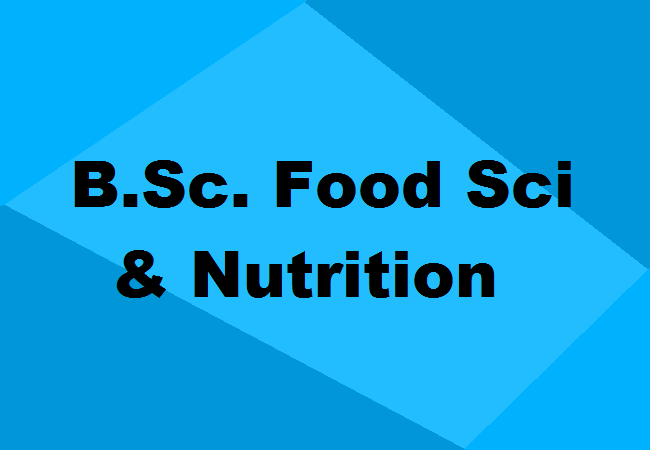OVERVIEW
Food Science & Nutrition is the scientific study of the utilisation of food by humans and its effects on health; in both healthy and diseased states. It is an interdisciplinary science that combines chemistry, biology and the behavioural sciences. The Food Science component of the programme relates to the structure, composition, chemistry and safety preservation of food.
Food Science also addresses the production, manufacturing and processing of food in food-related industries. The Nutrition component examines how the human body obtains and uses nutrients from food for maintenance, growth and renewal of body tissues to sustain life. It also considers the socio- economic, environmental and cultural determinants of eating behaviours and how they impact on health. Students enrolled in the B.Sc Food Science & Nutrition have the option of a single major in either Food Science or Nutrition.
All graduates however benefit from a uniform blend of courses in Nutrition and Food Science as well as topical issues and emerging technologies irrespective of major.
AIMS AND OBJECTIVES
At the end of the programme, students are expected to:
• Develop a well-rounded knowledge of the theories, paradigms and defining concepts of Food Science and Nutrition.
• Demonstrate understanding of the underlying principles of food production, new product development and food safety management.
• Develop a deep understanding of human nutrition and its socio-economic, environmental and cultural impacts.
• Be able to identify, define and resolve problems in food technology and food product development.
• Demonstrate an awareness of current debates and ethical issues in the areas of food safety, food production, nutritional assessment and health promotion.
INDUSTRY/GLOBAL TRENDS
As the frontiers of Food Science & Nutrition expands, so do awareness increase about the direct effect of food and nutrition on human health. Public awareness of nutrition, health and food safety is driving the demand for food scientists and nutritionists to develop new food products with emphasis on added value and safety.
Advances in nutritional knowledge and technology are also being applied to such areas as child nutrition, digestive health, nutraceuticals, nutrigenomics and medical conditions such as heart disease, diabetes, malnutrition, obesity and weight management. Like other scientific disciplines, ICT has changed the face of modern Food Science & Nutrition. Key areas of ICT application involve analytical procedures, process control, process planning, logistics, product storage & distribution and packaging.
ASSESSMENT
Students will be assessed on the basis of completed assignments, examinations, workplace learning and projects or other methods as outlined in specific subject outlines.
ENTRY REQUIREMENTS
See General Admission Requirements and Procedures pages.
TUITION METHODS
Lectures, class discussion and practical tutorials.
CAREER PROSPECTS
Food Science graduates work in food industry, research institutes and government departments & agencies in areas such as Food Manufacturing, Food Safety, Food Analysis, Brewing, Cereals & Baking, Dairy Products, Fresh & Processed Fruit & Vegetables, Food Processing and Meat Industry among others.Nutrition graduates work in companies, research institutes and government departments and agencies. Their roles typically include; Research, Consulting, Quality Assurance, Nutrition Information Service, Nutrition Programme Planning or Policy Analysis.








